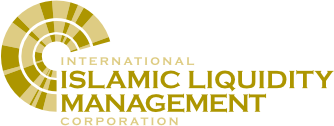The IILM hosts its 5th Shari’ah Roundtable focusing on Shari’ah Compliant Repo Market
Dr. Umar further noted that though there have been significant and pioneering efforts made by the IIFM, the AAOIFI and the IFSB in relation to developing and harmonizing Islamic repo structures and documentation across jurisdictions, there was still room for enhancement to ensure that the Islamic repo framework represents a widely accepted cross-border Islamic liquidity tool to better serve the Islamic finance community.
Kuala Lumpur, Malaysia – 28 June 2021.
The International Islamic Liquidity Management Corporation (IILM) is pleased to announce that on 28 June 2021, it concluded its 5th Shari’ah Roundtable focusing on Shari’ah-compliant repo market, the first ever virtual IILM Shari’ah Roundtable open to the public. This marked the fifth edition of the series of roundtable events organized by the IILM since 2013.
The Roundtable webinar was the first time such an event has been co-organised in collaboration with major international Islamic finance bodies such as the Islamic Development Bank (IsDB), the Accounting and Auditing Organisation for Islamic Financial Institutions (AAOIFI), the Islamic Financial Services Board (IFSB), the International Islamic Financial Market (IIFM), and the International Shariah Research Academy (ISRA) for Islamic finance.
The landmark event brought together more than 20 prominent Shari’ah scholars, policymakers, Islamic finance practitioners and leading experts spanning Bahrain, Kuwait, Malaysia, Nigeria, Qatar, Saudi Arabia, Turkey, United Arab Emirates, and United Kingdom to discuss and debate on various aspects of the Shari’ah-compliant repo market.
In a Special Address to officiate the Roundtable, His Excellency Sheikh Abdulla Saoud Al-Thani, Chairman of the Governing Board of the IILM and Governor, Qatar Central Bank remarked, “Though, the global issuance of Sukūk has grown significantly over the last decade, reflecting increasing interest from sovereigns, multilateral institutions, and corporations from developed as well as emerging economies; however, the availability of Shari’ah-compliant short-term instruments remains a key issue for the development of Islamic finance industry.” His Excellency, the Chairman also underlined, “The need to create an Islamic repo to support the growth of Islamic finance is greater than ever. Basel III, as well as its equivalent IFSB, rules on HQLA have made improving liquidity management a more pressing concern for Islamic banks. Therefore, designing a Shariah-compliant repo market along with right instruments which are not only Shari’ah-compliant but also fulfil the various legal and regulatory requirements for liquidity purposes is essential consideration.”
According to Professor Dr. Muhamed Ali Elgari, the Chairman of the IILM Shari’ah Committee: “The repurchase agreement which is the focus of this Roundtable is one of the most effective tools for liquidity management. We believe it is possible to design a structure that meets Shari’ah requirements and at the same time deliver the same economic outcome. Creating an active repo market in which Islamic financial institutions can play a role, depends almost entirely on finding such solution. This Roundtable will go a long way in trying to contribute to this effort.”
In his opening remarks, Dr. Umar Oseni, the CEO of the IILM, emphasized, “The pandemic should serve as a wake-up call and catalyst for progress in development of Islamic financial markets globally. Liquidity stress due to the pandemic has clearly identified the need for an effective Islamic repo cross-border market to support Islamic banks’ short-term funding needs. The lack of harmonization and wide Shari’ah acceptance have prevented the development of a strong liquid Islamic repo market and thus denied many Islamic banks an additional source of liquidity outside their own jurisdictions.”
Dr. Umar further noted that though there have been significant and pioneering efforts made by the IIFM, the AAOIFI and the IFSB in relation to developing and harmonizing Islamic repo structures and documentation across jurisdictions, there was still room for enhancement to ensure that the Islamic repo framework represents a widely accepted cross-border Islamic liquidity tool to better serve the Islamic finance community.
The Roundtable was divided into three focused sessions covering topics such as the heightened need for Islamic repo facilities particularly given the Covid-19 pandemic, key implementation challenges faced by global Islamic banks, Shari’ah rulings in relation to cross-border Islamic repo facilities as well as legal and structuring challenges faced by the industry.
The Roundtable provided the ideal platform for the speakers to exchange ideas and thoughts and to share their experiences from the market broadly reflecting Shari’ah, accounting, regulatory and legal perspectives, while engaging in live questions and answers from the audience.
In recognition of the successful discussions of the Roundtable, speakers expressed optimism that with further knowledge sharing and collaboration between industry stakeholders, particularly market practitioners and international Islamic finance institutions, innovative solutions that balance between the market demand and Shari’ah requirements could be originated to elevate Shari’ah-compliant repo structures to a truly global, cross-border liquidity management tool.
The event was attended by more than 200 virtual participants from around the world.
Share this story
About IILM
The International Islamic Liquidity Management Corporation (IILM) is an international organisation established on 25 October 2010 by central banks, monetary authorities and multilateral organisations to develop and issue short-term Shari’ah-compliant financial instruments to facilitate effective cross-border liquidity management for institutions that offer Islamic financial services (IIFS).
The current members of the IILM Governing Board are the central banks and monetary agencies of Indonesia, Kuwait, Malaysia, Mauritius, Nigeria, Qatar, Türkiye, the United Arab Emirates, as well as the multilateral Islamic Corporation for the Development of the Private Sector.
Membership of the IILM is open to central banks, monetary authorities, financial regulatory authorities or government ministries or agencies that have regulatory oversight of finance or trade and commerce, and multilateral organisations.
The IILM is hosted by Malaysia and headquartered in Kuala Lumpur.
Media Enquiries:
The International Islamic Liquidity Management Corporation (IILM)
T: +60(3) 2170 5000
www.iilm.com
